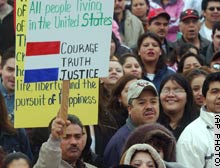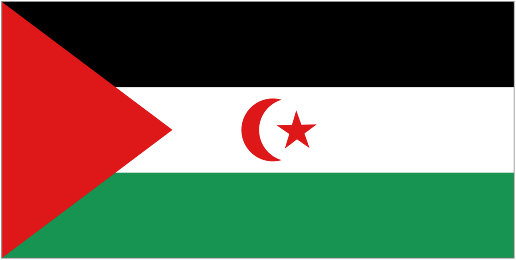
According to the Coalition Against Trafficking in Women, such trafficking plagues the United States as much as it does underdeveloped nations. Organized prostitution networks have migrated from metropolitan areas to small cities and suburbs. Women trafficked to the United States have been forced to have sex with 400-500 men to pay off $40,000 in debt for their passage.
In 2002, the US Department of State repeated an earlier CIA estimate that each year, about 50,000 women and children are brought against their will to the United States for sexual exploitation.
Traffickers use coercive tactics including deception, fraud, intimidation, isolation, threat and use of physical force, and/or debt bondage to control their victims. Women are typically recruited with promises of good jobs in other countries or provinces, and, lacking better options at home, agree to migrate. Through agents and brokers who arrange the travel and job placements, women are escorted to their destinations and delivered to the employers. Upon reaching their destinations, some women learn that they have been deceived about the nature of the work they will do; most have been lied to about the financial arrangements and conditions of their employment; and all find themselves in coercive and abusive situations from which escape is both difficult and dangerous.
This leads us to a situation in Berkeley where the group Women Against Sexual Slavery called for a boycott of a violence prevention music fest promoted by another women's rights group.
The following article is from Inside Bay Area.
Women's groups clash in Berkeley
By Kristin Bender, STAFF WRITER
Inside Bay Area
BERKELEY — A women's group against sexual slavery asked people to boycott a violence-prevention music and poetry festival Friday because the building where it was held is owned by a convicted sex-slave trafficker and his family.
A handful of picketers from the group Women Against Sexual Slavery showed up in front of the Shattuck Down Low on Friday night as the GirlFest music, poetry and spoken-word festival got under way.
The building where the anti-violence event was held is owned by members of the Lakireddy family, who several years ago were convicted of bringing girls and women from India to the Bay Area for cheap labor and sexual favors.
Having the festival there, the picketers said, was sending a contradictory message.
"When a group like (GirlFest) goes into a venue that is owned by (those involved with) sex slavery, they really aren't being conscious of the exploitation of women. It seems they could have found another venue," Women Against Sexual Slavery member Marcia Poole said.
Diana Russell, a professor emeritus at Mills College in Oakland and the author of a number of books on sexual violence, asked people headed to GirlFest on Friday to boycott.
"This organization is supposed to be anti-slavery and anti-sex trafficking. It's so contradictory that they would be meeting in this particular location," Russell said.
The three-day festival is being held in Berkeley and San Francisco to highlight the need to end increasing violence against women and girls and to raise money for a nonprofit organization that works to end homophobia, discrimination and sexual violence.
"Our mission is a positive one, and it's really sad that they want to bring this negative vibe when our mission is so much more than that," GirlFest organizer Annie Fukushima said.
The owner of the Shattuck Down Low, 2284 Shattuck Ave., is Daniel Cukierman, 32. He is not connected to the Lakireddy family other than being their tenant. The Lakireddy family owns the Shattuck Avenue building.
Cukierman said he is supporting GirlFest and its message and does not see the point of a boycott.
"Everybody I've talked to are kind of confused by a women's rights group protesting another women's rights group. I think they could work together and do a lot more positive things," he said.
Fukushima, a graduate student at the University of California, Berkeley who has organized a GirlFest in Hawaii, said she did not know the building was owned by the Lakireddy family until three weeks ago.
Fukushima said Poole's group could have done more good by working with GirlFest than against it.
"(Sex trafficking and violence against women) are really structural problems," she said. "Going after this one family is not going to end trafficking in general. If you really want to combat this huge phenomenon you need to look at the structural problems, you need to look at policy. I am really sad at this organization — there is so much more that can be done than just going after an anti-violence group."
Lakireddy Bali Reddy and his son, Vijay Lakireddy, were indicted in 2000, accused of having had an Indian man pose as the father of two sisters to bring them into the country on fraudulent temporary work visas. The older sister died in November 1999 of carbon monoxide poisoning after a heater in her Berkeley apartment malfunctioned.
Prosecutors said these girls and others brought here by similar means were used by Reddy as workers at his and his family's businesses, and for his own sexual gratification. Reddy, now 69, is serving 97 months in federal prison.
Vijay Lakireddy pleaded guilty in 2002 to one count of conspiracy to commit visa fraud and was sentenced to two years in prison, which he has served. Prasad Lakireddy pleaded guilty in 2003 to one count of conspiracy to employ unauthorized aliens and was sentenced to one year of home detention, a $20,000 fine and 300 hours of community service.
Reddy's brother and sister-in-law, Jayaprakash and Annapurna Lakireddy, each pleaded guilty to one count of immigration fraud in 2001. He was sentenced to a year and a day in federal prison and released in June. She served six months of home detention and paid a $2,000 fine.
Venkateswara Vemireddy, who had posed as the victims' father, was given probation and deported to India.

















